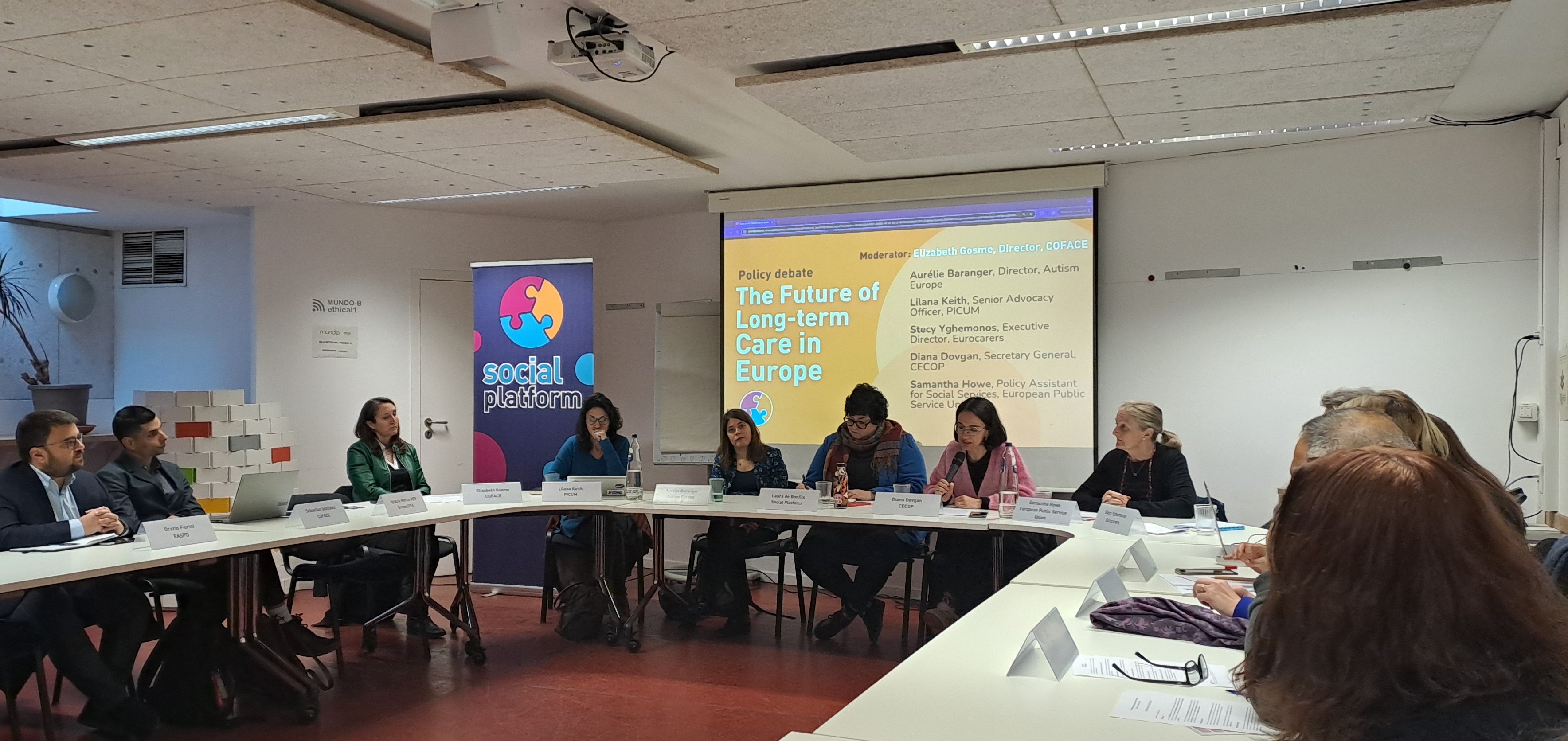
The debate was organised with the aim to shine a light on persisting challenges to improve the quality, accessibility and affordability of long-term care, as well as on policy solutions and opportunities for the future of long-term care under the European Care Strategy, with a view to what the new EU mandate should deliver to address existing gaps.
The European Care Strategy was launched by the European Commission in 2022. Its goal is to deliver quality, affordable and accessible care services across the EU, and improve the situation for care receivers and the working conditions and work-life balance of care providers. The Strategy includes two proposals for Council Recommendations: (1) on the revision of the Barcelona targets on early childhood education and care, and (2) on access to affordable high-quality long-term care.
The policy debate, aimed to tackle the question of long-term care, included a panel on challenges in care and social services, and a panel on policy responses and the future of long-term care. Speakers included Katarina Ivankovic-Knezevic, Director Social Rights and Inclusion at DG EMPL, MEP Ignazio Marino (Greens/EFA), and representatives of Social Platform members.
During the debate, CECOP’s Secretary General, Diana Dovgan, highlighted the challenges that cooperatives providing care face, such as staff shortages, lack of public investment, misuse of public procurements and the financial speculation in the long-term elderly sector. While cooperatives are addressing challenges in the sector, including the upskilling of workers, as many cooperatives invest significantly into providing staff training, and the precarious working conditions and remuneration that care workers often face as cooperatives provide better conditions and remuneration, cooperatives cannot carry this burden alone. Ms Dovgan emphasized that one of the biggest existential threats to care services is that care is seen as an expense, where financial costs must be minimised regardless of the implications for the care recipients, as opposed to treating it as an essential service to the community where quality and affordability must be prioritised.







 Employment & Social Inclusion
Employment & Social Inclusion  Entrepreneurship
Entrepreneurship Sustainable Growth
Sustainable Growth 

